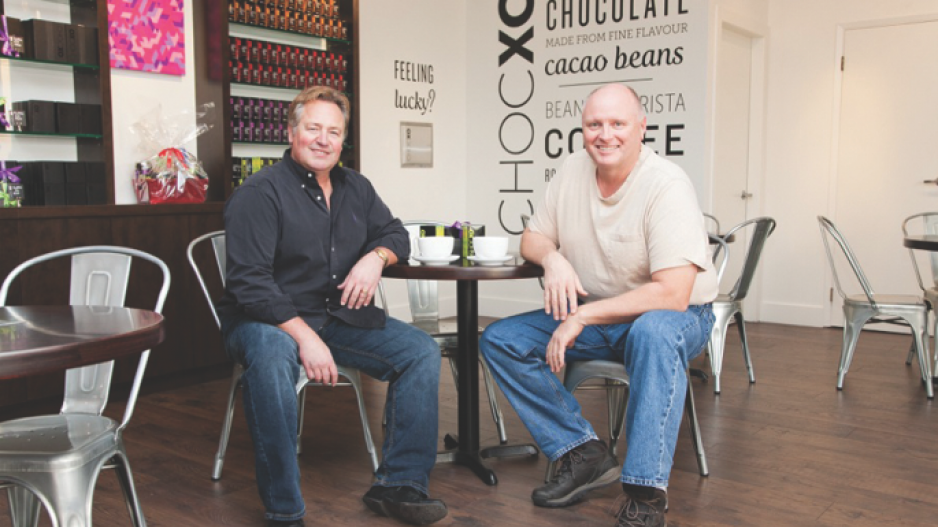Vancouver chocolate makers are increasingly focusing on quality and creativity to set themselves apart from their competitors in Eastern Canada.
In a semi-annual Statistics Canada survey done in June 2014, nearly 30% of chocolate confectionary manufacturers in B.C. produced chocolates from cacao beans instead of purchased chocolate, compared to 25% in Ontario.
Manufacturers producing from beans tend to have direct connections to cacao farmers to assess quality standards in harvesting and processing the bean.
Vancouver’s latest player on the chocolate scene, California-based bean-to-bar chocolatier ChocXO, launched its Richmond location on December 6.
Richard Foley, U.S. managing partner of ChocXO, said the company’s modern equipment in California refines chocolate at a quality comparable to that of traditional Swiss and Belgian chocolate makers, as smaller-scale productions cannot eliminate certain vinegars and acids that affect flavour.
“A lot of the small-scale startups are limited by funds, so they promote that they’re making chocolate in a more artisanal, old-fashioned way,” said Foley. “Technology makes a difference in manufacturing chocolate at the top level.”
Eagranie Yuh, Canadian partner of the International Chocolate Awards, said Vancouverites’ exposure to different cultures locally and through travels has led to their adventurous palates.
“In Vancouver, there is a lot more innovation going on, and unusual flavours and textures,” said Yuh, citing the avocado-flavoured winning chocolate in 2014 from Burnaby-based Chez Christophe Chocolaterie Patisserie.
“Consumers here are interested in trying wacky things that are maybe a little bit unusual,” said Yuh.
In 2012, B.C. households’ spending on chocolate bars increased 69% to $66 from $39 in 2010, according to Statistics Canada, while spending on other chocolate confections dropped from $105 to $61.
Thomas Haas, owner of the North Vancouver-based chocolaterie of the same name, said the Vancouver chocolate scene is becoming better and better with the arrival of new small artisan companies.
“Artisanal means handmade, quality-focused, creative, different, conscientious and small-batch production,” Haas said. “The more we have, the better it is for our business and industry.”
North America had 20% of the global market share of chocolate in 2011, second to western Europe’s 32%, according to KPMG’s The Chocolate of Tomorrow report released in 2012. •




